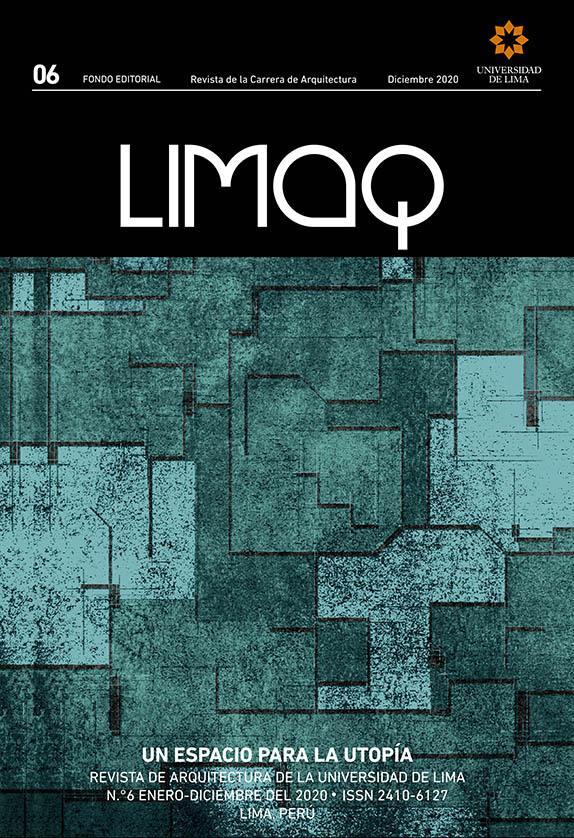CAD/CAM learning processes: from geometric iterations to prototypes
DOI:
https://doi.org/10.26439/limaq2020.n006.4822Keywords:
CAD/CAM, education, fabrication laboratories, teaching methodologiesAbstract
Using digital means in different activities —art, design, architecture, urban planning, among others—and on various scales has prompted the evolution and further execution of creative processes, by taking into advantage its capacity for representation, analysis and development. Thus, teaching CAD/CAM work methodologies has gained importance in university curricula in order to train students to employ tools in a reflective manner. This paper shows the methods used in a digital fabrication course, as well as its outcomes, and relates the stages of analogical and digital design to the materials’ characteristics and the production of objects and systems in a digital fabrication laboratory.
Downloads
References
Achten, H. (2003). New Design Methods for Computer Aided Architectural Design Methodology Teaching. International Journal of Architectural Computing (IJAC), 1(1).
Celani, G. (2012). Digital Fabrication Laboratories: Pedagogy and Impacts on Architectural Education. Nexus Network Journal, Architecture and Mathematics, 14(3).
Feisel, L., Rosa, A. (2005). The Role of the Laboratory in Undergraduate Engineering Education. Journal of Engineering Education (JEE), 94(1).
Gershendfeld, N. (2012). How to Make Almost Anything: The Digital Fabrication Revolution. Foreign Affairs. Estados Unidos.
Herrera, P., Juárez, B. (2012). Perspectivas en los laboratorios de fabricación digital en Latinoamérica. SIGRADI. Fortaleza, Brasil.
Kirschner, P., Sweller, J. y Clark, R. (2006). Why Minimal Guidance During Instruction Does Not Work: An Analysis of the Failure of Constructivist Discovery, Problem-Based, Experiential, and Inquiry-Based Teaching. Educational Psychologist, 4(2).
Kolarevic, B. (2001). Digital Fabrication: Manufacturing Architecture in the Information Age. ACADIA. Nueva York.
Pinochet, D., Labarca, C. y Burdiles, M. (2008). Dichotomy Between Digital Project and Real Project Execution. eCAADe. Antwerpen.
Puente. M.(ed) (2006). Conversaciones con Mies van der Rohe. Arquitectura y Tecnología, (6-7). Barcelona: Gustavo Gili.
Sánchez, J. (2019). Architecture for the Commons: Participatory Systems in the Age of Platforms. Architectural Design (AD), 89(2).
Shelden, D. (2002). Digital Surface Representation and the Constructibility of Gehry’s Architecture. Boston: Massachusetts Institute of Technology.
Yáñez, P. (2016). El Proceso de aprendizaje: fases y elementos fundamentales. Revista San Gregorio, 11(1).



